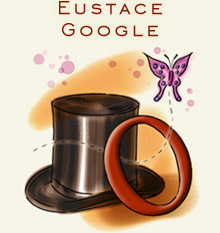Emdashes—Modern Times Between the Lines
The Basics:
About Emdashes | Email us
Ask the Librarians
Best of Emdashes: Hit Parade
A Web Comic: The Wavy Rule
Features & Columns:
Headline Shooter
On the Spot
Looked Into
Sempé Fi: Cover Art


Here’s a woman after my own heart: Sue Blank (great name; hope she’s a crossword fanatic) from the Newtown Advance. She’s saved me the googling I was planning to do for you nice people to uncover the obscure—to us philistines, that is—words in “Burning the Brush Pile,” Galway Kinnell’s lovely recent New Yorker poem about the sad end, or should that be ends, of a snake caught in a brush-pile fire. Here are the lines in question, with boldface for emphasis. Obviously, you need to read the whole poem to get the whole story, along with the rest of his poems, for general gladness.
…stumps, broken boards, vines, crambles.
Suddenly the great loaded shinicle roared
into flames that leapt up sixty, seventy feet,
In the evening, when the fire had faded,
I was raking black clarts out of the smoking dirt,
and a tine of my rake snagged on a large lump.
Then the snake zipped in its tongue
and hirpled away…
Detective Blank writes:
Once I wrote for a trade magazine that limited the length of my sentences to 20 words, the better to avoid challenging the ability of its readers. Many magazines and newspapers limit both vocabulary and sentence complexity to make content easily accessible to the average person. But having been a reader for more than threescore years, I rarely find a word in such magazines or newspapers whose meaning I don’t already know. When I do, I write it down and learn it. Then I keep it in my desk drawer where I can review it frequently until I’m sure I own it.
Thus a poem in the June 19 issue of The New Yorker gladdened my heart with four unfamiliar words: “clart,” “crambles,” “shinicle” and “hirple.” I went looking for definitions. The first word, clart, means to daub, smear or spread with mud, and as a noun, refers to a glob of mud. Shinicle refers to a fire and its light, and hirple means to hobble or limp. “Crambles” did not appear anywhere except in a slang dictionary, and the definition there did not fit. [I looked briefly, too; the sense I found is also “to hobble.”] Still, one can guess from context. The poem spoke of a bonfire built of boughs, stumps, broken boards, vines and crambles. So - perhaps “useless waste or clutter”? “Junk”?
Looking for definitions can easily lead us word freaks far astray, using up an hour or so in random explorations of unfamiliar words. While searching for “crambles,” I serendipitously found “whingle,” to complain, and it reminded me of “whinge,” a word I’ve heard used only by Englishmen to refer to a kind of whining complaint. Surely the two words derive from the same source.
Other useful words, lost, alas, to daily use, include… (cont’d.)
I once consulted on the choice of a single word in one of Galway’s poems while I was his student, and it also ended up in The New Yorker. Alice Quinn does not know of my contribution, since, really, it was so small. But, like the icebox plum, so sweet.
The first person to write in with a plausible (documented) definition of “cramble” as used in “Burning the Brush Pile” gets a prize—any Galway Kinnell collection, your choice.
comments are off




Comments
We have two winners: Carolita Johnson and…Sanbornnapper. Contest closed! Winners’ explanations to appear in a post shortly. Congratulations, and Sanbornnapper, you may now choose your Kinnell volume!
So … don’t leave us in suspense! What’s the “plausible (documented) definition of ‘cramble’?”